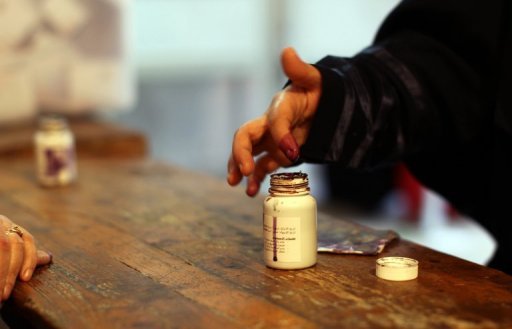CAIRO: As the effects of the global economic downturn take their toll on Egyptians, the Civil Watchdog for Human Rights launched a new program under the title “The Right for Food, to confront the “constant deterioration of citizens’ rights to secure sufficient amounts of food.
While prices have soared at unprecedented rates, incomes have remained unchanged. So the program is designed to put an end to government policies that “have driven millions of Egyptian to a pit of hunger and extreme poverty.
“We have started approaching like-minded local, regional and international organizations with the aim of bringing together all efforts concerning people’s right for food, program chairman Essam Sakr told Daily News Egypt.
The program outlined certain mechanisms to battle this crisis.
Firstly, the program plans to launch awareness campaigns and give funds to those living in underprivileged areas, with close attention to areas suffering from extreme poverty.
The program will also issue regular reports designed to monitor violations against citizens as a result of inaccessibility to food through a hands-on team tasked with collecting related data.
It further seeks to fund agricultural producers and train them on how to cooperate together to protect their rights. In a workshop where both producers and government officials will participate, they will also come up with fair ways to price their products.
The program also plans to create a network of NGOs that support its cause and will assist it in implementing its vision.
In a 2008 report, members of the Division of Agriculture and Irrigation in Specialized National Councils, listed Egypt among countries with minimal access to red meat, with an average 15 grams of meat per person a day, as opposed to 250 gm in rich countries.
Meanwhile, in another report published by the United Nation’s Human Development program, Egypt ranked 111 among the world’s poorest nations, as 14 million Egyptians live under the poverty line, including four million who receive no nourishment a day.
In Upper Egypt, 35.2 percent of the population lives under the poverty line, as opposed to 13.1 percent in the northern part of the country.
The UN’s Food and Agriculture Organization (FAO) warned in one of its reports that the level of self-sufficiency resulting from agricultural crops have been steadily declining in Egypt throughout the last three decades.
In the early 1990s, the level of self-sufficiency reached 68 percent. In 2006, it reached 66.2 percent.
Meat production plummeted from 95 percent to 74.6 percent throughout the same period, while self-sufficiency from oil plants reached a little above 50 percent.

